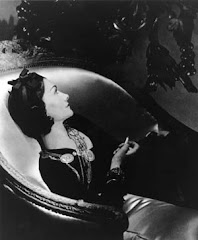
One of my favourite films is the strange bitter-sweet 1948 Letter from an Unknown Woman. The author of the novella on which it is based was Stefan Zweig, and Patrick Wright has a long piece about him in the Guardian today. Antony Beevor once told me that Zweig's Beware of Pity was his favourite novel, and how odd that a Viennese Jew should have written the great novel of the life of a cavalry officer.
Zweig describes the late 19th century of his childhood as the "world of security". Its values were established and largely beyond question. Its members were confident in their monarchy and parliament. As for the possibility of violent disruption, scarcity, war and the intervention of life-changing fate, all such thoughts were swept under the carpets of a society devoted to bourgeois comfort.What did they see, asks Zweig of that world in which everything had its norm, its definite measure and weight? Each of them lived his life in uniformity. A single life from beginning to end, without ascent, without decline, without disturbance or danger, a life of slight anxieties, hardly noticeable transitions. In even rhythm, leisurely and quietly, the wave of time bore them from the cradle to the grave . . . What took place out in the world occurred only in the newspapers and never knocked at their door.
Should he decide to travel, the well-off European of this age might journey as far as India without a passport: the frontiers which, with their customs officers, police and militia, have become wire barriers thanks to the pathological suspicion of everybody against everybody else, were nothing but symbolic lines which one crossed with as little thought as one crosses the Meridian of Greenwich.
Formed in this atmosphere, but also torn out of it, Zweig was both the creature of his time and the roughly awakened judge of its illusions. He condemns the desiccated rigidity of its school curriculum, its confining customs of women's dress and its sexual hypocrisy. The people of this era were naively settled in their optimism and "touching liberalism". They had no idea that life could also consist of "tension, and profusion, and being lifted up from all sides", or that "each succeeding day that dawns outside our window can smash our life". They refused to heed the warnings of Sigmund Freud, who had argued that their optimistic idea of reason as the force of the future was a chimera floating over turbulent complexes and drives.

2 comments:
I remember studying _Letter from an Unknown Woman_ in a graduate school seminar called "Maternal Melodramas." A haunting film indeed.
Zweig's first, glowing impressions of Brazil as a society that embraced different cultures and races, "Brazil, a land of the future" is a counterpoint to his account of the old Empire. Though he soon became disillusioned, and his (justified) paranoia grew with Axis advances.
A pity that the second Mrs Zweig, who was so much younger than her husband and had her life ahead of her, joined him in a death pact.
Post a Comment